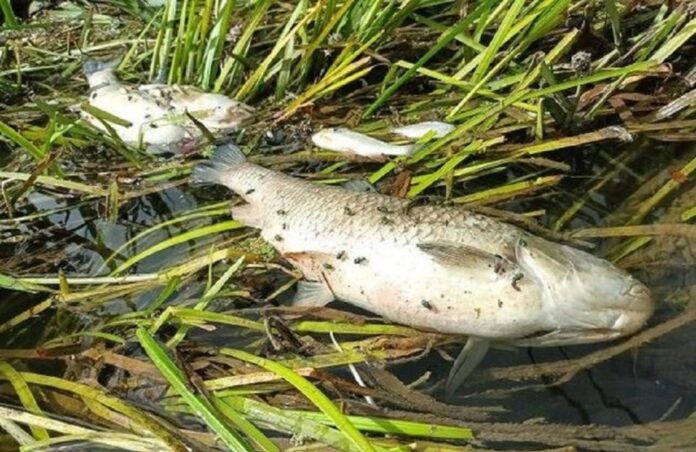Environment groups have issued warnings about the devastating impact of the UK’s hottest June on record, which resulted in fish deaths in rivers and disruptions to insects and plants. The “Wildlife Trusts” expressed concern that nature is being severely affected by extreme weather events without sufficient time for recovery. The Met Office is expected to address the potential link between high temperatures and climate change. Water usage also increased significantly, with demand surging by 25% during peak times in some regions, according to Water UK.
Reports indicated that the lack of oxygen in the water due to decreased river levels contributed to fish deaths, with pollutants from cars and trucks exacerbating the situation during flash storms. The Environment Agency received more reports of dead fish compared to the same period last year. The heatwave also caused wilting among various flowering plants, including orchids, leading to reduced food sources for insects such as bees and butterflies that rely on nectar and pollen. Short-lived species, like butterflies, were particularly impacted, affecting population growth.
These effects are surprising given the wet and cold spring experienced this year and are occurring earlier than in the previous year. The UK’s environment and water supplies are under increasing pressure due to more frequent and intense periods of warm weather.
As temperatures rise, household water consumption also rises. Water companies supplied 1.2 billion more litres of water in July and August compared to the same months in 2021. Some regions, including Devon, Cornwall, and parts of the southeast, have implemented hosepipe bans.
Water experts note that rivers and reservoirs, which provide drinking water, are currently in better condition compared to the same time last year. However, prolonged dry weather can deplete water supplies rapidly, necessitating continued water conservation efforts by homes and businesses to mitigate potential future drought conditions.
Simple actions like providing a bowl of water for hedgehogs, bees, and butterflies in gardens and allowing grass to grow taller can help provide vital resources and habitats in hotter weather.
















